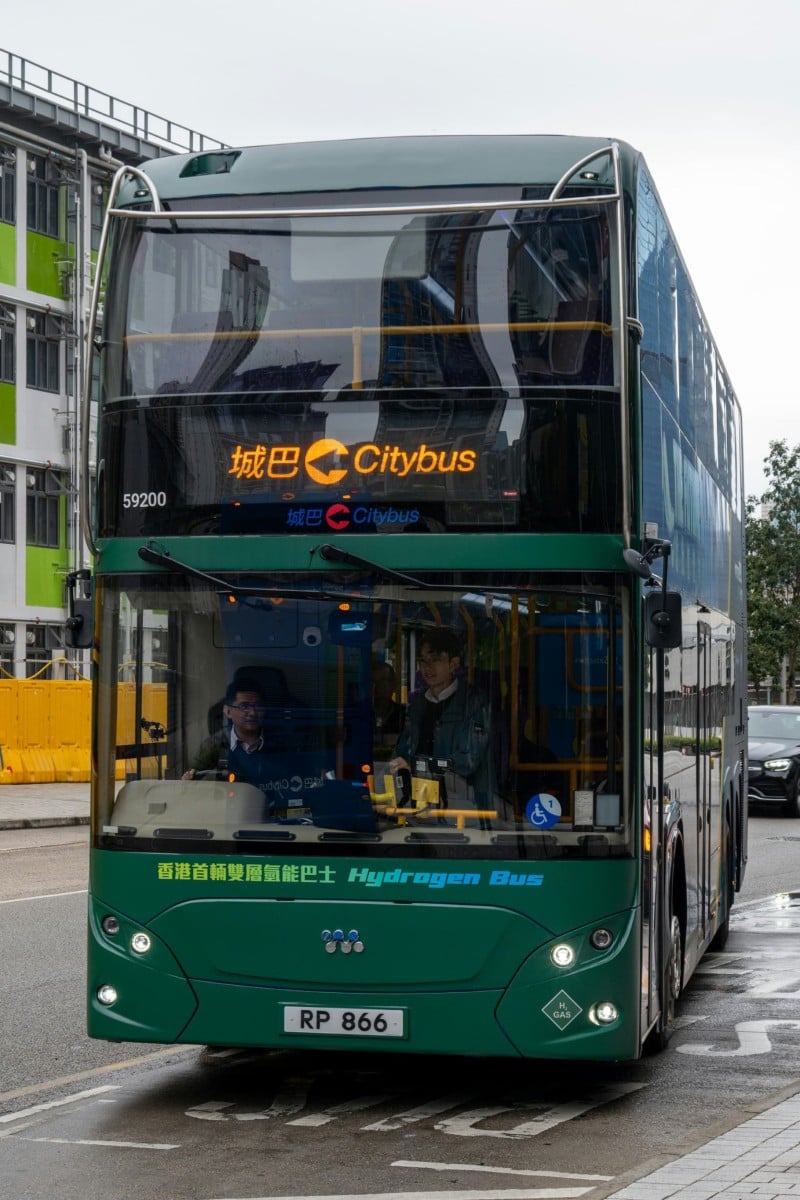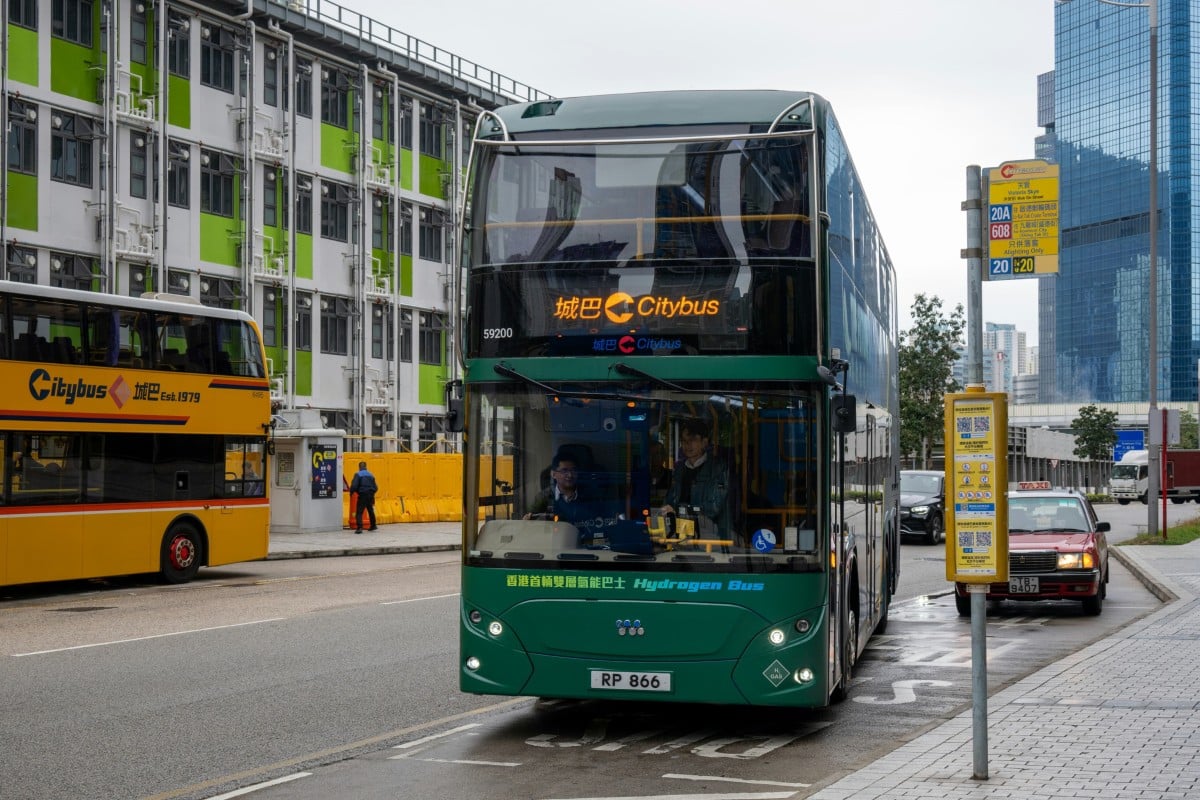
- Public transport operator Citybus says the vehicle will be deployed in Kai Tak and that it generates zero roadside emissions
- Bus has undergone a 200km trial and completed several refuelling operations; training programme for drivers has also been rolled out
 Road testing on the first hydrogen bus in Hong Kong has kicked off. Photo: Handout
Road testing on the first hydrogen bus in Hong Kong has kicked off. Photo: HandoutHong Kong will get its first double-decker bus powered by hydrogen in a month’s time, with owner Citybus saying it has just begun a series of tests on the road without passengers.
“From [Sunday], the hydrogen bus will begin non-passenger road testing,” said Kenny So, the public transport firm’s general manager for engineering.
“We will deploy it to our Kai Tak operating area, where our hydrogen bus will be providing services to customers in the initial stage.
“We look forward to creating the opportunity for the public to experience this brand-new hydrogen vehicle within a month, marking a major milestone in the new chapter of the hydrogen era in Hong Kong.”
The bus, which generates zero roadside emissions, had undergone a full 200km (124-mile) test at the company’s West Kowloon depot and completed multiple refuelling operations at the city’s first hydrogen refill station, Citybus said.
The company has also rolled out a training programme for engineers and bus drivers to ensure the safe operation of both the vehicle and refuelling station, with the first batch having already completed the course.
Hong Kong start-up’s new line of autonomous boats to clean up India’s waters
At the end of 2023, Citybus obtained permission from the Transport Department to use the hydrogen-powered bus for transport services and finished building the refuelling station – a year after the company publicly unveiled the vehicle.
The firm said such buses were more environmentally friendly than their diesel-fuelled counterparts, as hydrogen was turned into electricity through chemical reactions and only emitted water in the process.
According to the company, refuelling takes about 10 minutes and allows the bus to travel up to 400km.
Citybus said it planned to launch no fewer than five of the buses and establish a second refuelling station at its Hong Kong Island Chong Fu Depot next year.
The firm has said it aims to operate a full fleet of zero-emission buses by 2045, which would put it five years ahead of the government’s 2050 target to achieve carbon neutrality.
Last October, Chief Executive John Lee Ka-chiu devoted part of his annual policy address to calling for the development of hydrogen fuel infrastructure, especially among commercial and heavy goods carriers.
Hong Kong’s air quality is in danger of worsening to pre-Covid levels
The use of zero-emission vehicles in both fields has yet to take off, with many current models not meeting the necessary endurance and driving requirements.
Lee said the government would begin devising a policy in the first half of this year, with preparatory work for legislative amendments covering the production, storage, transport and application of hydrogen fuel to be conducted in the first quarter of 2025.
According to official figures, transport accounts for one-fifth of the city’s carbon emissions.
Under the 2023-24 budget, HK$200 million (US$25.6 million) was set aside to support trial runs for double-decker buses and heavy vehicles powered using hydrogen fuel cells.